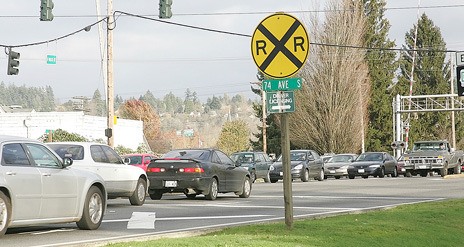The Kent City Council is expected to vote on several changes to its new Transportation Impact Fee ordinance at its 7 p.m. regular meeting March 1 at City Hall.
Local business people and city staff raised questions about the ordinance after the Council adopted it in July as a means to generate revenue from retail and residential developers to get some much-awaited transportation projects off the ground. The fees went into effect in August.
City staff has come back with a proposed revised ordinance that would eliminate annual automatic fee increases in exchange for an annual rate review by the Council.
The revised ordinance also clarifies the language for what “change of use” means, so that it is more clear to the developer and city staff about what kinds of changes actually merit being charged a TIF.
Neither the existing ordinance nor the revised ordinance specifically exempts daycare businesses or other similar uses from the fee. City staff noted that such exemptions are unnecessary because the change-of-use provisions will create more opportunities for daycares to locate in existing buildings throughout the city without paying a TIF.
The Council’s Public Works Committee will vote on the revised ordinance at 3:30 p.m. Feb. 28 at City Hall. If the committee approves the ordinance, it will go before the full Council for approval on March 1.
The city charges transportation impact fees, or TIFs, up front to new developments (retail and residential) as well as when pre-existing structures see a major change in use. The rate of the TIF depends on the kind of development being proposed: single-family residences pay a different rate than a hotel, as would a warehouse, or a movie theater. The key is how much more traffic each would put on Kent’s roads.
The fees average about $4,084 per peak hour trip, according to city officials. Downtown-area fees are about 25 percent lower because the impact fee calculation assumes fewer trips due to the close proximity of amenities and public transportation options.
The fees are expected to generate an estimated $89 million in revenue by 2017 to help pay for $389 million in transportation projects. That revenue number could go higher or lower depending on how much actual development occurs each year.
Talk to us
Please share your story tips by emailing editor@kentreporter.com.
To share your opinion for publication, submit a letter through our website https://www.kentreporter.com/submit-letter/. Include your name, address and daytime phone number. (We’ll only publish your name and hometown.) Please keep letters to 300 words or less.

